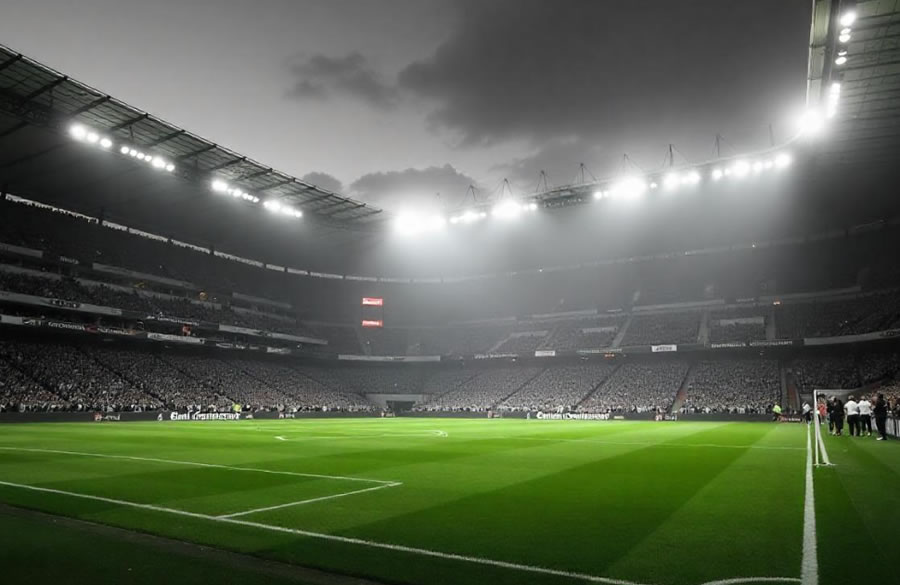The Legacy of the UEFA Champions League
The Legacy of the UEFA Champions League: History and All-Time Winners
Since its inception in 1955, the UEFA Champions League has grown into the most prestigious club football competition in the world. From the iconic nights at the Santiago Bernabéu to unforgettable moments at Anfield, the tournament has delivered generations of drama, talent, and history.
Today, the Champions League is not only a symbol of footballing excellence but also a global cultural phenomenon watched by hundreds of millions across continents. Its legacy has been shaped by legendary players, celebrated managers, dominant clubs, and classic finals that have left an indelible mark on the sport.

Origins of the European Cup and the Birth of the Champions League
The competition began as the European Champion Clubs’ Cup in 1955, created by French sports newspaper L’Équipe to determine the best football club in Europe. The first edition was contested by 16 teams, with Real Madrid winning the inaugural trophy.
In 1992, the tournament was rebranded as the UEFA Champions League, marking a new era that included group stages and greater media exposure. This change allowed for more clubs from top domestic leagues to participate, significantly raising the competition’s level and prestige.
Format Evolution and Expansion of the Tournament
The Champions League has undergone numerous format changes over the decades. What started as a knockout competition among domestic champions has transformed into a multi-stage tournament that includes group play, seeded draws, and multiple qualification rounds.
UEFA has continued to expand the tournament to increase global viewership and competitive balance. Beginning in 2024, a revised format known as the “Swiss model” is set to replace the current group stage, featuring 36 teams in a single league table and more matches overall.
The Most Successful Clubs in Champions League History
Real Madrid remains the most successful club in the competition’s history, having lifted the trophy a record 14 times. Their dominance includes a five-year streak from 1956 to 1960 and three consecutive titles from 2016 to 2018 under Zinedine Zidane.
AC Milan follows with 7 titles, while Bayern Munich and Liverpool each hold 6. FC Barcelona and Manchester United have 5 and 3 titles respectively, and more recently, Chelsea and Manchester City have added to England’s tally.
Legendary Finals That Shaped European Football
The Champions League has produced some of the most memorable finals in football history. The 2005 final in Istanbul, where Liverpool overcame a 3–0 deficit to defeat AC Milan on penalties, is widely regarded as one of the greatest comebacks in sports.
Other iconic matches include Manchester United’s last-minute heroics in 1999, Real Madrid’s 4–1 extra-time victory over Atlético Madrid in 2014, and Chelsea’s dramatic win in 2012 with Didier Drogba’s decisive penalty.
Iconic Players and Managers Who Defined the Tournament
Many of football’s greatest legends have cemented their legacies through the Champions League. Cristiano Ronaldo, the all-time leading scorer in the competition, won five titles with Manchester United and Real Madrid. Lionel Messi, with his mesmerizing performances, delivered four trophies for FC Barcelona.
Managers like Sir Alex Ferguson, Carlo Ancelotti, Pep Guardiola, and José Mourinho have each left an unmistakable imprint on the tournament. Ancelotti, in particular, became the first manager to win four Champions League titles.
Modern Era Dominance: Spanish Supremacy and the English Resurgence
From the late 2000s to the late 2010s, Spanish clubs dominated European football. Real Madrid and Barcelona were perennial contenders, benefiting from the presence of Ronaldo and Messi during their peak years.
More recently, English clubs have re-emerged as dominant forces. Liverpool, Chelsea, Manchester City, and Manchester United have consistently reached the later stages, supported by strong domestic leagues and vast financial resources. The Premier League’s global appeal has also made 스포츠중계 of Champions League matches particularly popular among Asian and Middle Eastern audiences.
Complete List of Champions League Winners by Year
A full list of Champions League winners from 1956 to 2024 is available on UEFA’s official website. Notable patterns include Real Madrid’s early dominance, AC Milan’s golden era in the late 1980s and early 1990s, and Bayern Munich’s resurgence in the 2010s.
- 2020: Bayern Munich
- 2021: Chelsea
- 2022: Real Madrid
- 2023: Manchester City
- 2024: Real Madrid
Cultural and Commercial Impact of the Champions League
Beyond sport, the Champions League has become a cultural export. The anthem, played before every match, is recognized by football fans around the globe. Sponsorships from global brands, record-breaking broadcasting rights, and ever-expanding digital engagement have turned the tournament into a multi-billion-euro enterprise.
Platforms like Sportstv365.com have emerged to provide comprehensive access to live matches, replays, stats, and analysis, allowing fans worldwide to follow the competition closer than ever.
Why the Champions League Remains the Pinnacle of Club Football
The Champions League represents the highest level of competition for club football. Unlike domestic leagues that span an entire season, the Champions League demands consistent excellence under pressure in both home and away environments.
Each match is a spectacle, where the best clubs, players, and managers come together on a global stage. For many footballers, winning the Champions League is the ultimate career goal—eclipsing even World Cup dreams in some cases.
As the 2025 tournament approaches, the legacy of the Champions League continues to grow, reaffirming its status as the most coveted and revered competition in world football.
Last Updated on April 22, 2025

